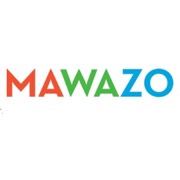Explore Top Azure Platform Companies in Canada
Use the advanced filter to find companies near you or refine the results Last updated in: November, 2025
Digital Marketing Agency for B2B Field Service Companies
We are a team of passionate local software developers based in Vancouver, British Columbia. In 2017, we established ourselves in the heart of Vancouve...
We integrate technologies into your business so you can keep being the best at what you do. Digital technologies have become an essential part of any...
Majestic is a Toronto-based digital marketing services firm that helps brands succeed on every screen. We are trusted by brands like Scotiabank, Pepsi...
Touchwood Technologies provides MLM Software, web development, Mobile App Development & Digital Marketing services
Nmédia Solutions, headquartered in Drummondville, uses the best techniques of the three major spheres - web marketing, ergonomics / design and program...
Innovating Ideas into Advanced Software Solutions
Established in 2007, UUUDesign is a Canadian company of PhD professionals, highly skilled software developers and UX/UI design experts, mobile applica...
Your Customized and Personalized Software Development Solution.
Baltech India is a privately owned company offering offshore outsourcing services to various clients in North America, Europe and Australia since year...
Enterprise mobile and desktop application developers. Over a decade of experience, they offer services in cross-platform development, blockchain & AI
Custom Web and Mobile development organization
Ottawa SEO Inc. is your foremost destination for exceptional search engine optimization (SEO) and web design services in Ottawa.
Services:
Zealous System is a software development company that offers a wide range of IT solutions and services to clients worldwide.
Intelry Inc. is a full featured Digital Agency based in Canada that focuses on innovation, UX and new technologies. We help emerging businesses get of...
We Design & Develop Digital Products
Drupal Development Agency
Services:
A smarter future!
Enterprise Drupal, Simply Delivered.
Maya HTT is an industry-leading engineering & manufacturing solutions provider focused on software and industrial AI services to boost performance.
An IT company specialising in legacy app modernization. 30+ years of experience in the industry and completed over 2000 modernization projects.
Filter Azure Platform Companies in Canada by Cities
Find the right tech company near you or from a specific city. Some of the best companies might be located in smaller cities.
Find more Azure Platform companies around the world
TechBehemoths is the world's most advanced and user-friendly platform to match IT Companies with real clients without hustle.
Canada IT Industry: Companies and General Profile
Canada IT Industry: Companies and General Profile
There are over 43,200 companies in the Canadian Information and Communications Technologies (ICT) sector. The large majority (over 39,000) fall within the software and computer services industries.
The ICT sector consists mainly of small companies, with approximately 37,500 of them employing fewer than 10 people. The number of large companies employing over 500 individuals accounts for approximately 105 firms, including subsidiaries of foreign multinational corporations.
In a more industry-narrow way, the Canadian advertising and marketing industry is growing based on international awareness of creativity and the multicultural population. The progressive approaches are resonating with both US and globally-based companies, Mark Tharme from Muse Marketing says.
Why You Should Work With Canadian IT Companies
Canada has found itself in a favorable position compared to other countries that have a well-developed IT infrastructure. Web & IT agencies have a fast-developing rate due to facilitating policies and attracting more young professionals than any other country in the region.
Additionally, IT companies in Canada provide a full-service range with a considerably lower price than in the U.S., and offer in exchange excellent execution, fair customer experience, and professional project management.
From another perspective, working with Canadian IT companies could bring added value in terms of security. In uncertain times, both politically and economically, working with IT companies in Canada reduces technology risk.
What You Should Be Aware of When Working With Canadian IT Companies
The Canadians started to focus on developing their IT industry in 2012, which mainly reveals a lack of consistent experience in the web & software industry. Since almost all IT companies in Canada are small, with fewer than 10 people, the industry is in the full development process, and most of the agencies are not yet ready to take on big projects. Since then, the Canadian IT industry has rapidly evolved with major tech hubs like Toronto, Vancouver, and Montreal by 2025.
At the same time, Canadian companies pay a living wage, and our standard of living is higher than in many other countries. As a result, expect the cost for services to be somewhat higher than in emerging economies.
Are Canadian Web Companies Reliable?
Along with the workforce, Canada attracts an increasing number of companies from around the world, and many of them find the place comfortable and suitable for growing a business in the IT industry. In 2025, there were more than 7,000 IT startups in Canada, according to StartupBlink. Small companies in the Canadian IT industry are new entries and don’t have a global reputation compared to tech giants that relocated or opened new offices in Canada. Nonetheless, you cannot name small Canadian IT companies unreliable, as they all obey the same principles and rules as the bigger ones.
How the Canadian IT Industry Compares to the Neighboring Countries
With the leading US on the continent and probably globally, Canada started to get more attention from the market as being a healthy alternative to what the US has to offer. This refers both to skilled developers & web designers and also clients. Due to the market accessibility and developed IT infrastructure, Canada has its own advantages over the US, like prices and availability, but it’s still behind the U.S in terms of competitiveness.
Overall, Canada is a promising destination for IT companies and a good option for web projects with a growing number of IT centers. The Toronto - Kitchener - Waterloo IT area registered good progress both in training and hiring new talents that compete even with the US Silicon Valley.
What Makes Canada Attractive for IT Companies?
Canada is attractive because the society embraces a global mindset, which is natural due to the multicultural population, both in the industry and in the general population. Historically, the Canadian design and advertising industry was built on American, European, and Japanese cultural influences. Today, the country benefits from influences from all over the world.
At the same time, Amanda Nelson from The Art Of Business mentions that Canada has found itself in a favorable position compared to other countries that have well-developed IT infrastructure. Web & IT agencies have a fast-developing rate due to facilitating policies and attracting more.
How Does the Canadian Government Support the Local IT Sector?
Federally, the Canadian government is providing access to capital through grant programs, including digital transformation grants for businesses, which in turn creates opportunities for digital marketing and IT firms as service providers.
Alberta and Ontario - The Best Canadian Territories/Provinces For IT
Out of 10 Territories and Provinces, Canada is divided. There are 2 worth mentioning - Alberta and Ontario, with Calgary and Toronto as the main tech hubs.
The Toronto/Hamilton business corridor (known as the GTHA) is growing rapidly, both in population and as an international business centre. It already has the highest-density population in Canada and is projected to grow significantly by 2050. With close proximity to Northeastern US markets, high awareness of the city of Toronto as an international destination, and an excellent culture of creativity across all disciplines, this area is well-positioned for growth. Immigration policies are also favorable for companies seeking a location in North America.
In addition, according to Ty Mikitka from Vertical Motion Inc., in recent years, Calgary, Alberta, has made growing strides to become a recognized Western Canadian technology hub thanks to the influx of large technology companies. Notable organizations, including Unity Technologies, Infosys, Test Driven Solutions, RBC Innovation Hub, and Amazon Web Services (Late 2023-Early 2024), now call Calgary home, creating thousands of IT jobs for local Canadians.
"Canadian IT Talent Pool is Good to Excellent"
When talking about the Canadian talent pool, Mark Tharme appreciated the local talent pool as good to excellent. He thinks that IT and communications-related education is available at all levels: colleges, universities, and private schools offer courses in a wide range of information technology disciplines. Students have opportunities to do work placements, co-ops, and internships with many well-regarded companies while studying or upon graduation from a recognized program.
Plan to Open a New IT Business in Canada? Focus on New Technologies!
Local tech leaders also mention that there is enough room in the market for new, innovative companies. However, most of the opportunities are especially in new and emerging technology areas, including AI, cybersecurity, and data management. Canadian companies are "punching above their weight" in many of these areas. Another sector good to explore is security. As Justin Harney from LionEater, the country needs IT security leadership.
As for how easy it is to open a business in Canada, Jeffrey Miles from Jeff Social Marketing mentions that it’s simple to open a business in Canada. The first step is to apply for a business license.
This article was created together with professionals coming from reputable Canadian IT companies. Special credits: Jeffrey Miles, Mark Tharme, Justin Harne, Ty Mikitka, and Amanda Nelson.
What is Azure Platform and what are its benefits for your projects?
Azure Platform, developed by Microsoft, stands as a versatile cloud computing platform known for its ability to empower organizations with a wide range of cloud-based solutions. It offers a comprehensive suite of services and tools designed to support businesses in their digital transformation journey.
There are more than 2722 IT companies that specialize in providing Azure Platform services to businesses across the globe. These companies serve as strategic partners, helping organizations leverage Azure to achieve their goals. Notable IT service providers in this domain include Accenture, Capgemini, Infosys, and Deloitte. They offer a spectrum of services, from Azure consulting and implementation to ongoing management and support.
Azure Platform service providers employ a combination of tools and technologies to deliver effective solutions. This may include Azure DevOps for continuous integration and deployment, Azure Monitor for performance tracking, and Azure Resource Manager for resource provisioning and management. It's essential to differentiate between Azure and Azure Platform: while Azure refers to the cloud platform itself, Azure Platform encompasses the set of services, solutions, and expertise offered by IT companies to optimize Azure for specific business needs.
Azure Platform is not limited to a single service but comprises a rich ecosystem of interconnected offerings. Related services include Azure Virtual Machines for scalable computing, Azure Kubernetes Service for container orchestration, Azure AI for artificial intelligence capabilities, Azure Data Services for robust data management, and Azure Security Center for enhancing security posture.
Selecting the right IT company for Azure Platform services is a critical decision. To make an informed choice, consider factors such as the provider's experience with Azure, client references, industry expertise, and the range of services they offer. Assess their ability to align Azure solutions with your business objectives, scalability requirements, and ongoing support capabilities.
Azure Platform services find applications in a wide array of projects, including:
-
Enterprise Resource Planning (ERP) Systems: Implementing scalable ERP systems to streamline business processes.
-
E-commerce Solutions: Building and managing high-performance e-commerce websites and platforms.
-
Big Data Analytics: Leveraging Azure's data analytics tools for data-driven insights.
-
IoT Solutions: Developing IoT applications for device management and data analysis.
-
AI and Machine Learning Projects: Building intelligent applications for predictive analytics and automation.
-
Cloud Migration: Migrating on-premises infrastructure to Azure for cost savings and scalability.
-
Cybersecurity Initiatives: Strengthening security through Azure's robust security services and monitoring capabilities.
-
Hybrid Cloud Deployments: Implementing a hybrid cloud strategy for data backup, recovery, and business continuity.























